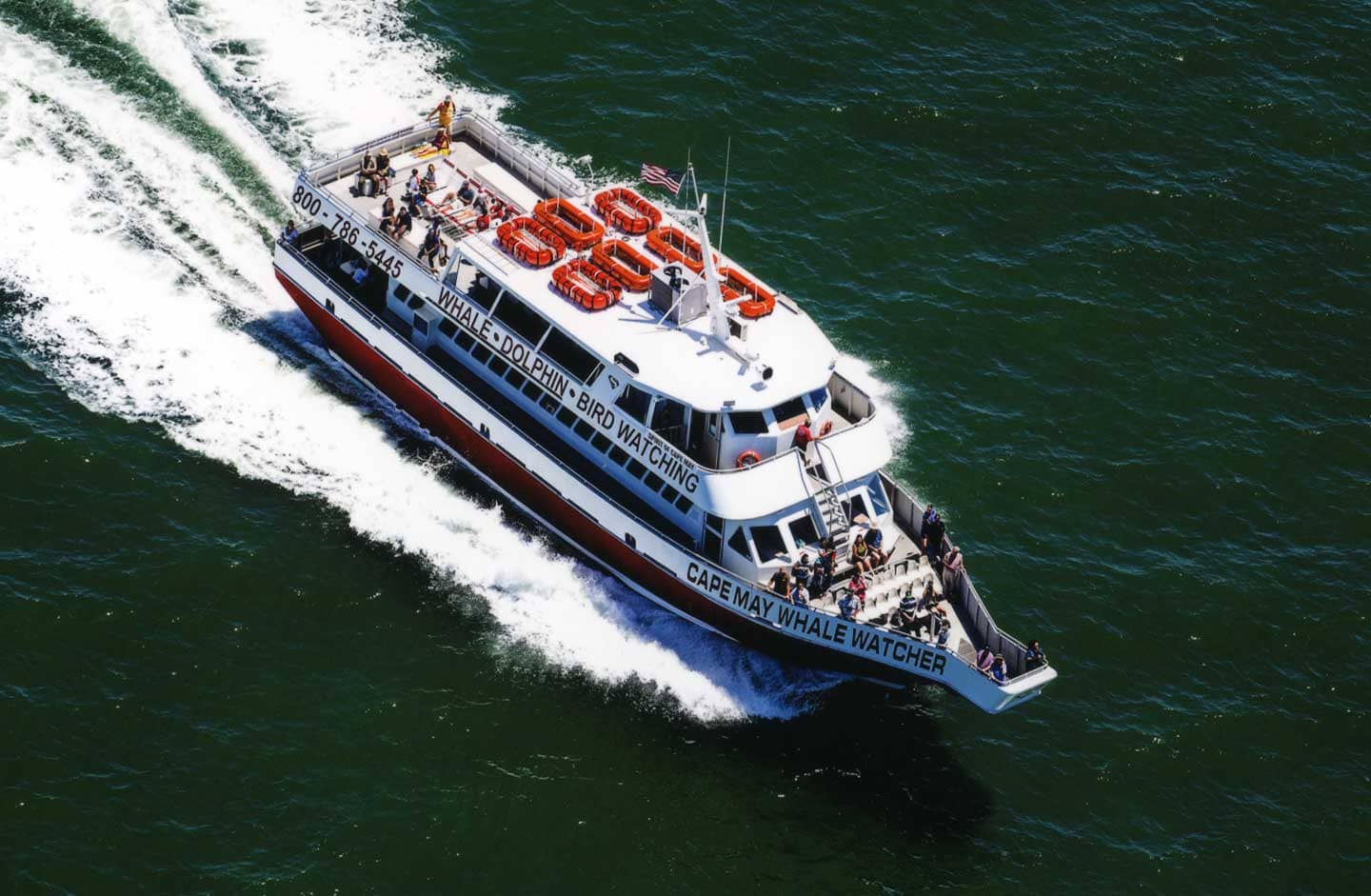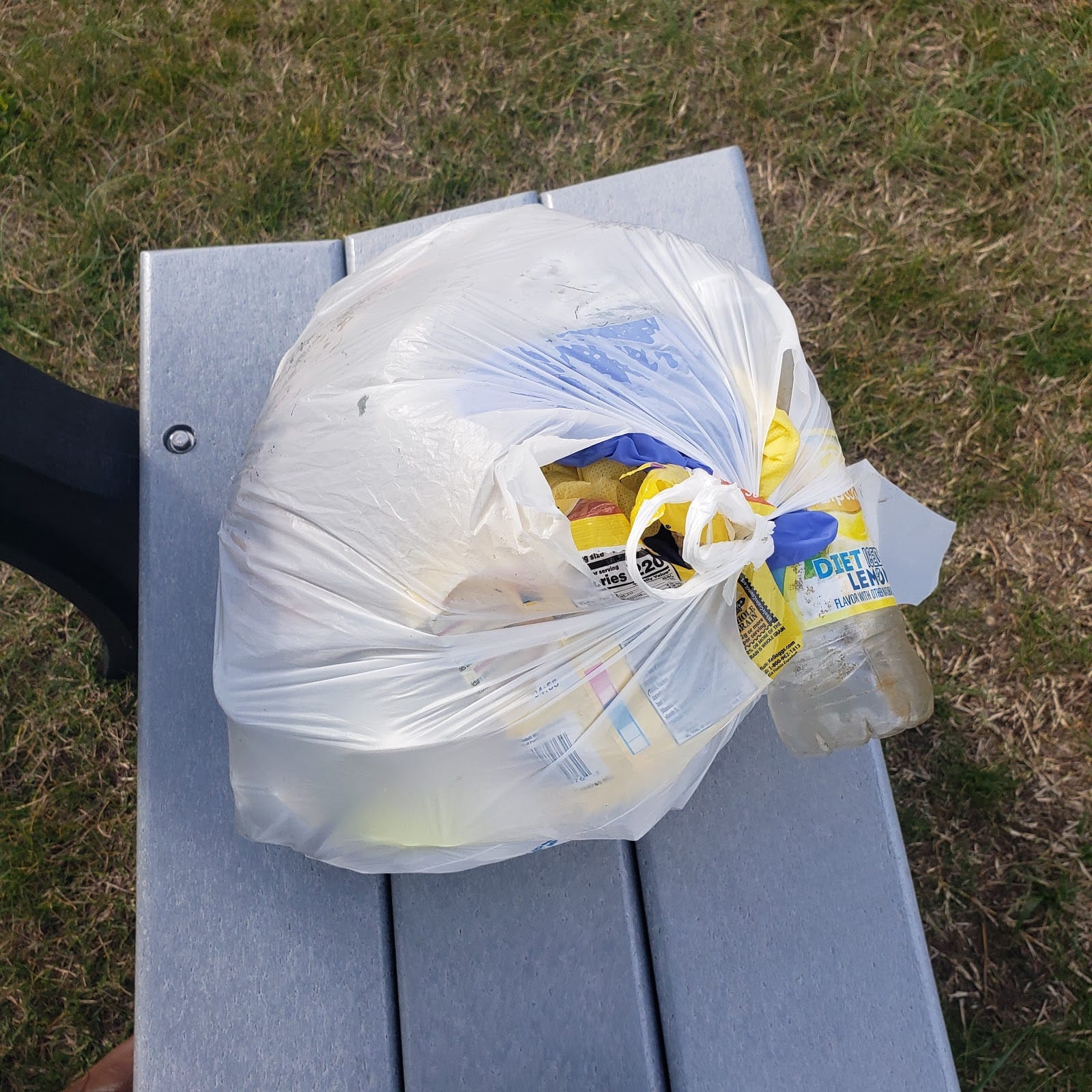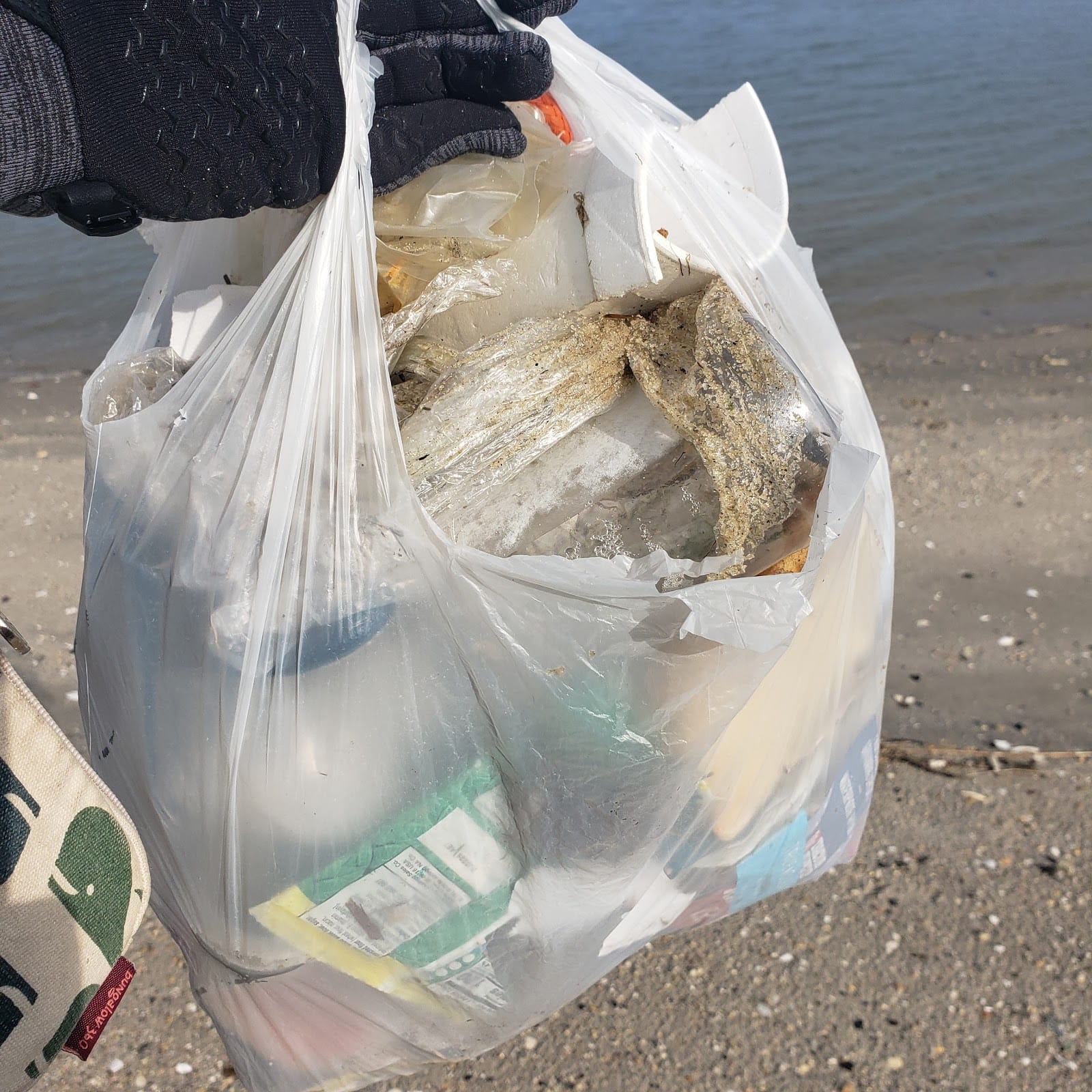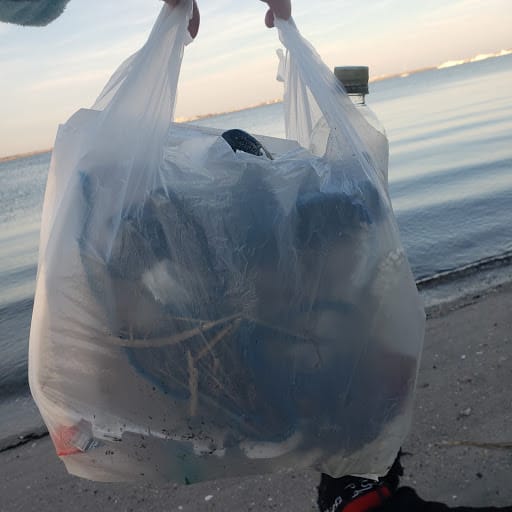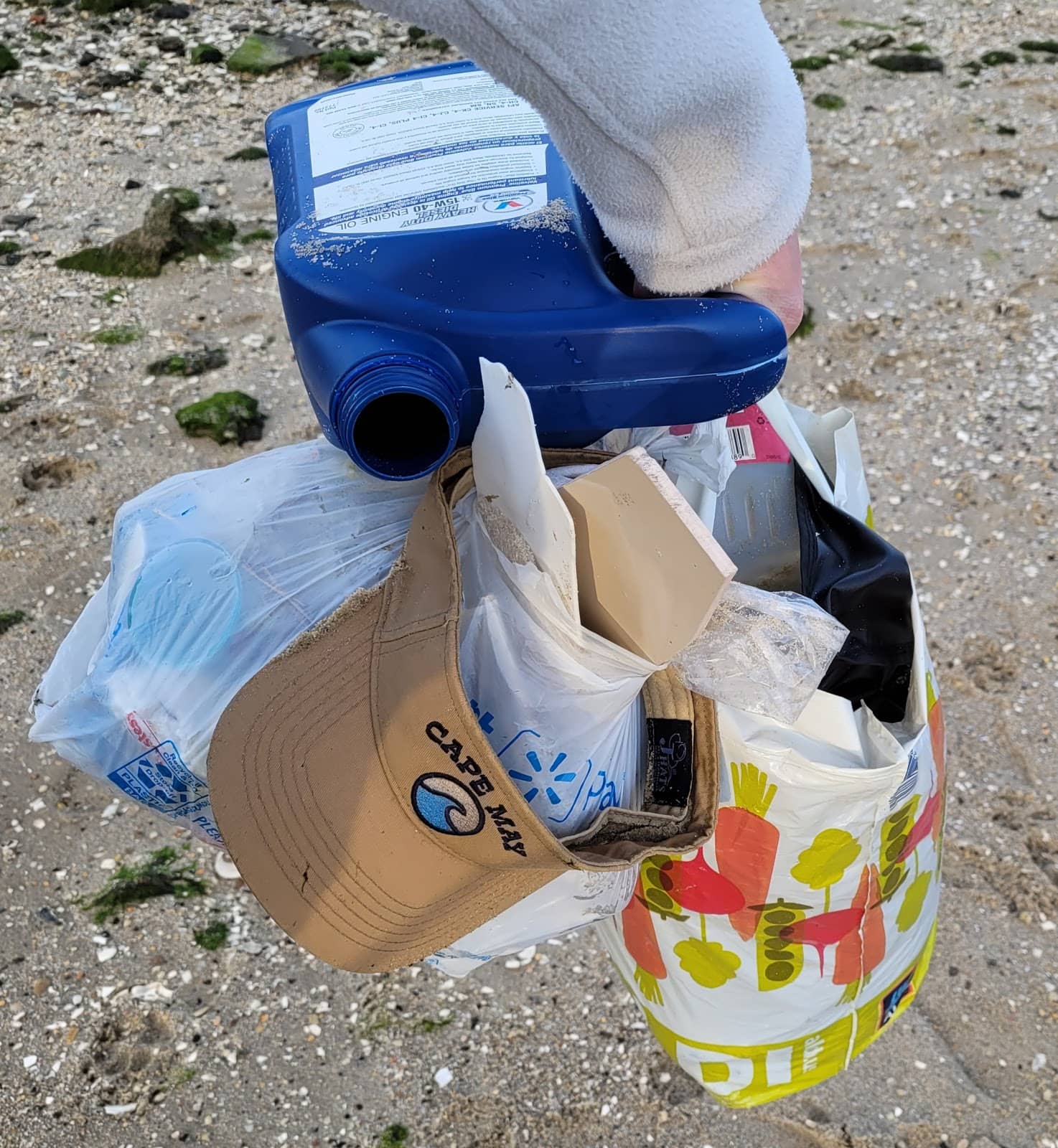Plastic is the Problem, You Can Be the Solution
By Kristen Young
Recently, I saw a comment on a social media page from a fellow naturalist that caught my eye. While walking on the beach with her brother, he pointed out how she never takes her eyes off the water. All of the replies from other naturalists confirmed that they, too, exhibit this same behavior, myself included. We tend to be a relentlessly curious crowd. However, the next day, I took my dog and my daughter for a walk to the beach and I realized that I wasn't looking at the ocean at all. Instead, I was fixated on the sand, distracted by all the plastic and picking up as much garbage as I could carry.
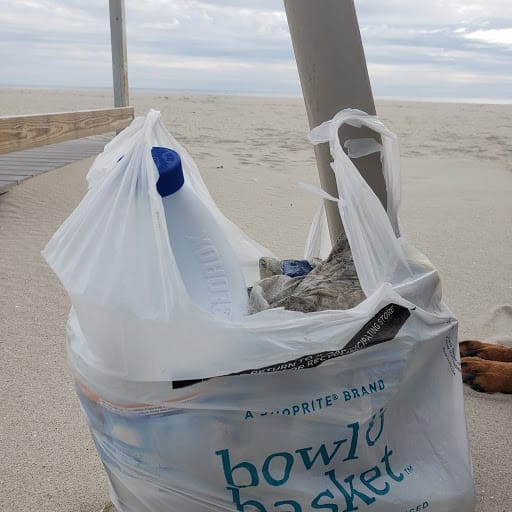
I found 5 beer bottles, 7 plastic straws, 1 Mylar balloon, the leg of a broken plastic chair, 1 bleach bottle, 2 face masks, a plastic glove, half of a broken fishing pole (not pictured, my daughter was using to draw in the sand), and a whole mess of small plastic pieces. All this came from about 0.1 mile of coastline along the Cape May beach.
So why is there so much garbage washing up on our beaches? Well, for starters, plastic takes a really long time to break down. It can take hundreds of years for a piece of plastic to degrade, so a huge percentage of plastics ever made are still in existence today. Recycling is a huge step towards keeping plastics out of the oceans, and cuts back on the amount of new plastics made, but it is still not enough. It is actually much easier for plastic manufacturers to make new plastic than it is to recycle old plastics. So in order to keep costs down, often anything made of recycled plastic if three to five times more costly than something made from new plastic, which just makes the overall situation worse. The most helpful thing we as a society can do is reduce our dependence on single-use plastics.
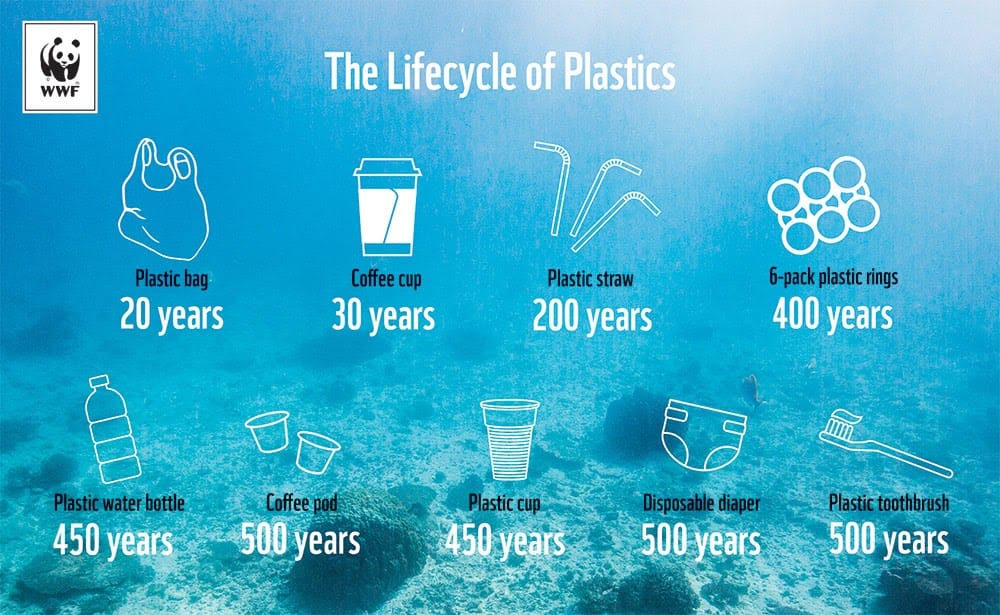
This can be a simple change, like bringing a reusable water bottle with you and refilling it throughout your day instead of drinking bottled water. The pandemic has made this more difficult to do with many water bottle filling stations not being available to help reduce the spread of the virus. However with proper planning, you can bring enough water for you and others in your group. We encourage our crew to bring their bottle or cup with them during work on Cape May Whale Watcher. Captain Jeff estimates he has cut out around 1500 to 2000 plastic bottles of water annually with one stainless steel 32oz bottle.
Switching to reusable straws like stainless steel or paper straws is another way to help. Reusable coffee cups can double as water cups to be reused throughout the day. Bringing your own utensils with you like knives and forks can be as simple as keeping an extra set in your backpack or lunch box.
Another popular way to help is bringing reusable shopping bags with you when you go shopping. If you do need to use plastic bags at the store, reuse them as trash bags in your bathroom, or perhaps bring them with you when you go for a walk and pick up trash along the way. Most grocery stores have a plastic bag recycling center in their entrances, so if you have no use for them, you can at least recycle them. How about that single sandwich they hand you at Wawa that you put in your hand and walk out the door just to remove it from the bag and eat? You could carry the sandwich without the bag to get to the car or wherever you plan to eat lunch.
Ready to step your game up even more? Try reusable beeswax sheets instead of plastic wrap, or washable zip-top bags for storing leftovers. Opting for bars of soap, shampoo, and conditioner to cut down on plastic bottles. Check your cosmetics, as some contain plastic microbeads and buy clothing made with natural fibers to avoid shedding microplastics into the waterway in the wash.
Everywhere you look in your modern home, grocery store, shops, etc you will find plastic. Some items like first aid and the medical field cannot exist without plastic to keep us healthy and safe from disease and infection. I cannot say that we can rid the world of plastic and become waste free over night. To quote Anne-Marie Bonneau
Anne-Marie Bonneau@ZeroWasteChef·Feb 21, 2019 "We don't need a handful of people doing zero waste perfectly. We need millions of people doing it imperfectly."
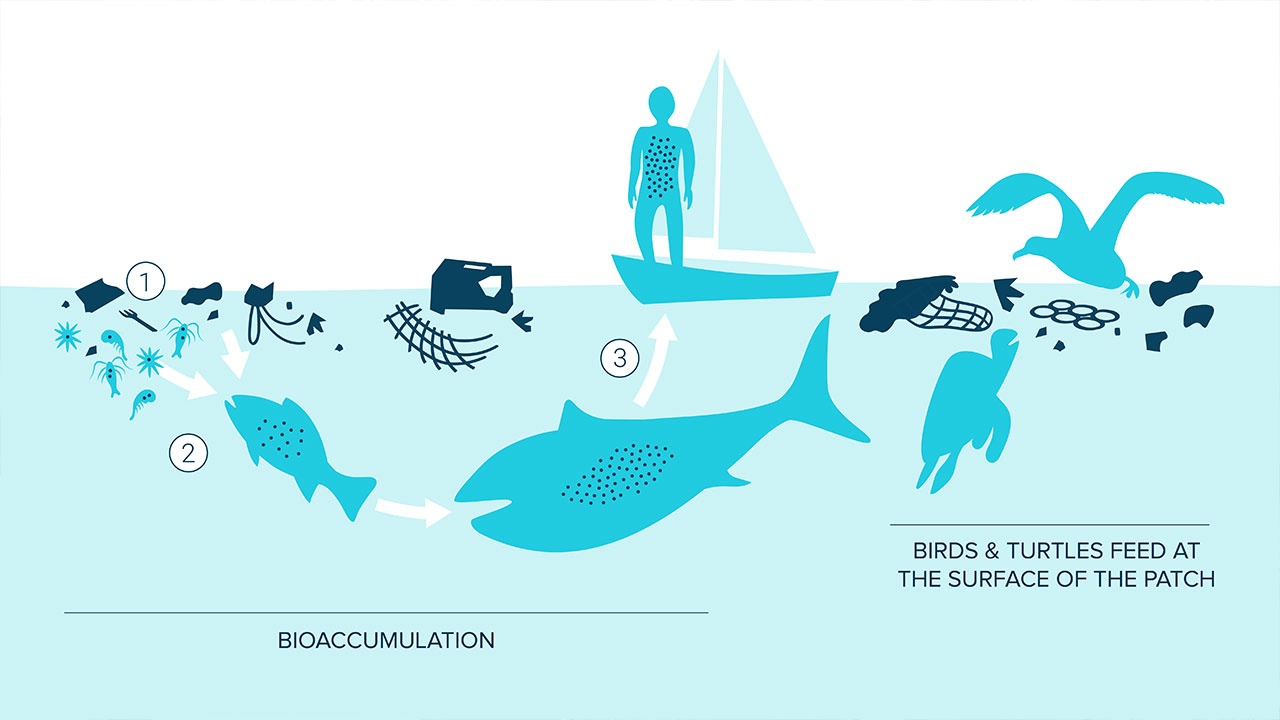
You may be asking yourself, what are microplastics, and can they really do that much damage? Microplastics are exactly what they sound like; small pieces of plastic from the breakdown of larger plastics, microbeads from cosmetics, or fibers from synthetic materials. When they enter the waterways and eventually the ocean, the smallest pieces of plastic are eaten by filter feeders, like Menhaden, animals eating microscopic plants and animals filtered out of the seawater. The animals are unable to digest the plastics, so they stay in their system until they are eaten by something bigger, and so the cycle continues up the food chain. This process is known as bioaccumulation. Larger pieces of plastic debris are directly eaten by seabirds and turtles, who mistake them for natural prey items.
To make matters worse, plastics contain toxins, which also accumulate in the animals’ tissues. Top predators, like sharks, dolphins, orcas, and humans end up with all of these toxins from their food web in their systems. A recent study has found microplastics in samples from human placenta for the first time. While the implications of these findings are not yet known, one thing is certainly clear- we need to end our dependence on plastic.
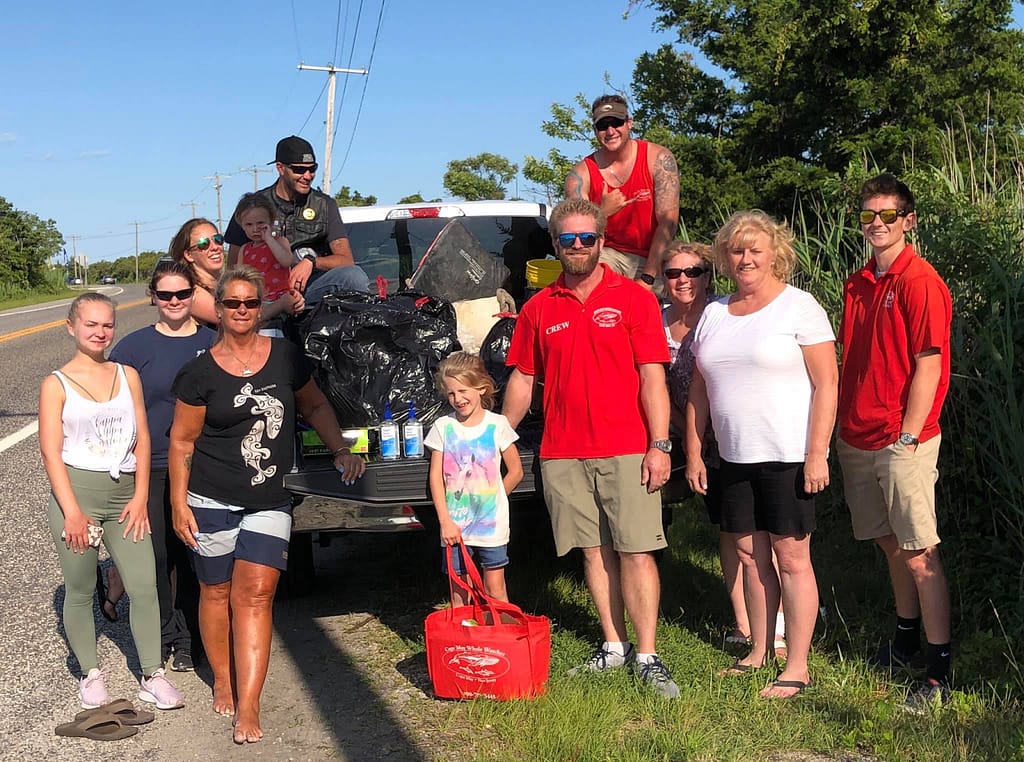
At Cape May Whale Watcher, we are doing our part to limit single use plastics. We gave up plastic straws a while back, and have switched to compostable cups. We encourage you to bring reusable cups and water bottles when sailing with us, and we recycle everything we can. In years past, we have hosted local beach cleanups, and have collected hundreds of pounds of debris from our shores. Last year, in the midst of a pandemic, we had to do things a little differently.
From now through April 22, 2021 (Earth Day), Cape May Whale Watcher will be hosting a virtual beach cleanup! To participate, all you have to do is go out to your local beach, park, woods--wherever you like to go to soak up some nature--and clean up any garbage. Snap a picture of your garbage haul, and tag Cape May Whale Watcher and use #CMWWcleanup. Instagram, Twitter or Facebook-
Your photo will automatically enter your name in our raffle, where the winner gets 4 free passes for any of our regular whale and dolphin watches, plus a free T-shirt! We will announce winners on Earth Day, April 22, 2021.
Also look forward to new Cape May Whale Watcher Beach Clean Ups coming for 2021 as well as our balloon pickup at sea program resuming in 2021. The Pandemic is ongoing and its terrible. However, the earth needs us, because we need the earth. Thinking of choices when it comes to single use plastics is as simple as making choices for our own health because our own health is inherently tied to the health of the Earth and the life giving eco system of which we as humans are a big part of. Healthy choices may seem burdensome at first glance, but how burdensome are unhealthy choices in the long run?
We look forward to seeing your cleanup efforts, and we’ll be sure to share ours with you as well!
References:
Ragusa et al. 2020 Plasticenta: First evidence of microplastics in human placenta. Environment International,146.
The Ocean Cleanup. https://assets.theoceancleanup.com/app/uploads/2019/05/TOC_GPGP_bioaccumulation_1280.jpg
WWF Australia. https://www.wwf.org.au/news/blogs/the-lifecycle-of-plastics#gs.pzrwbb
